Mariani Premier Group is on a roll...
Mariani Premier Group Expands in Arizona with Acquisition of Desert Foothills Landscape, Handyman Maintenance, and Benhart Landscaping
Ryan Malone, Director of Maintenance at Malone’s Landscape in Washington, Talks Business Growth, Company Culture & Healthy Competition.
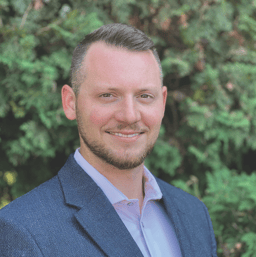 Malone’s Landscape has been serving the Seattle community since 1991. Founded by Jim and Debbie Malone, the design/build firm has grown into a full-service landscaping company with more than 100 employees, 200 current clients and their two sons at the helm.
Malone’s Landscape has been serving the Seattle community since 1991. Founded by Jim and Debbie Malone, the design/build firm has grown into a full-service landscaping company with more than 100 employees, 200 current clients and their two sons at the helm.
When did you become involved with the business?
My dad and mom started the design-construction side in 1991, and I’ve been in and out of the industry my whole life. Six years ago, I came on full-time and took over the maintenance side of the company.
When did Malone’s branch out into maintenance?
In 2002, the company wanted to diversify and add that all-encompassing service for its clientele, but the maintenance division floundered for years. Now, we’ve grown from three maintenance crews to 17 maintenance crews, three enhancement crews, three irrigation technicians and account managers.
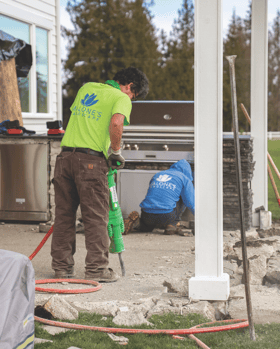 How did you get the maintenance company where it is today?
How did you get the maintenance company where it is today?
The culture on that side of the business was really rough when I came in. Our crews had been through many managers and nothing was really sticking. I focused on my people for two or three months before I even saw any of my clients. We had to get our culture right. I listened to what my team needed in terms of equipment and facilities to perform the jobs in the correct way. Instead of focusing on the clients first, I realized if I take care of my people, they will take care of the clients. In doing that, we shifted the pride everyone took in their work. We were able to build a great team that cared and was passionate and happy about their work every day.
How are you keeping that good culture going today?
We host culture rallies with awards to celebrate hard work from the previous month. We pay in line with the industry, if not a little more, and we really want to create a family culture that’s fun and easygoing. When you join Malone’s, you’re joining a family and oftentimes you spend more time at work than with your family. We treat everyone with respect and don’t rule with an iron fist. The labor shortage hasn’t impacted us because we’re taking care of our guys, and they recruit friends and family who want to come work for Malone’s.
Is there a lot of crossover between your design/build clients and your maintenance clients?
Turning design/build clients into maintenance has been a tricky thing to figure out, especially in the Seattle market. You have these big projects on the design side that are on more compact backyards, rather than large estates, that don’t necessarily need maintenance. Right now, our design/build is 95 percent residential, and our maintenance is 95 percent commercial.
Do you have a favorite project Malone’s has done?
We won a Washington Association of Landscape Professionals (WALP) award for this beautiful deck with outdoor living space and kitchen that the team built across a creek. The property had a big fir tree, and we built around it. It was a really cool project.
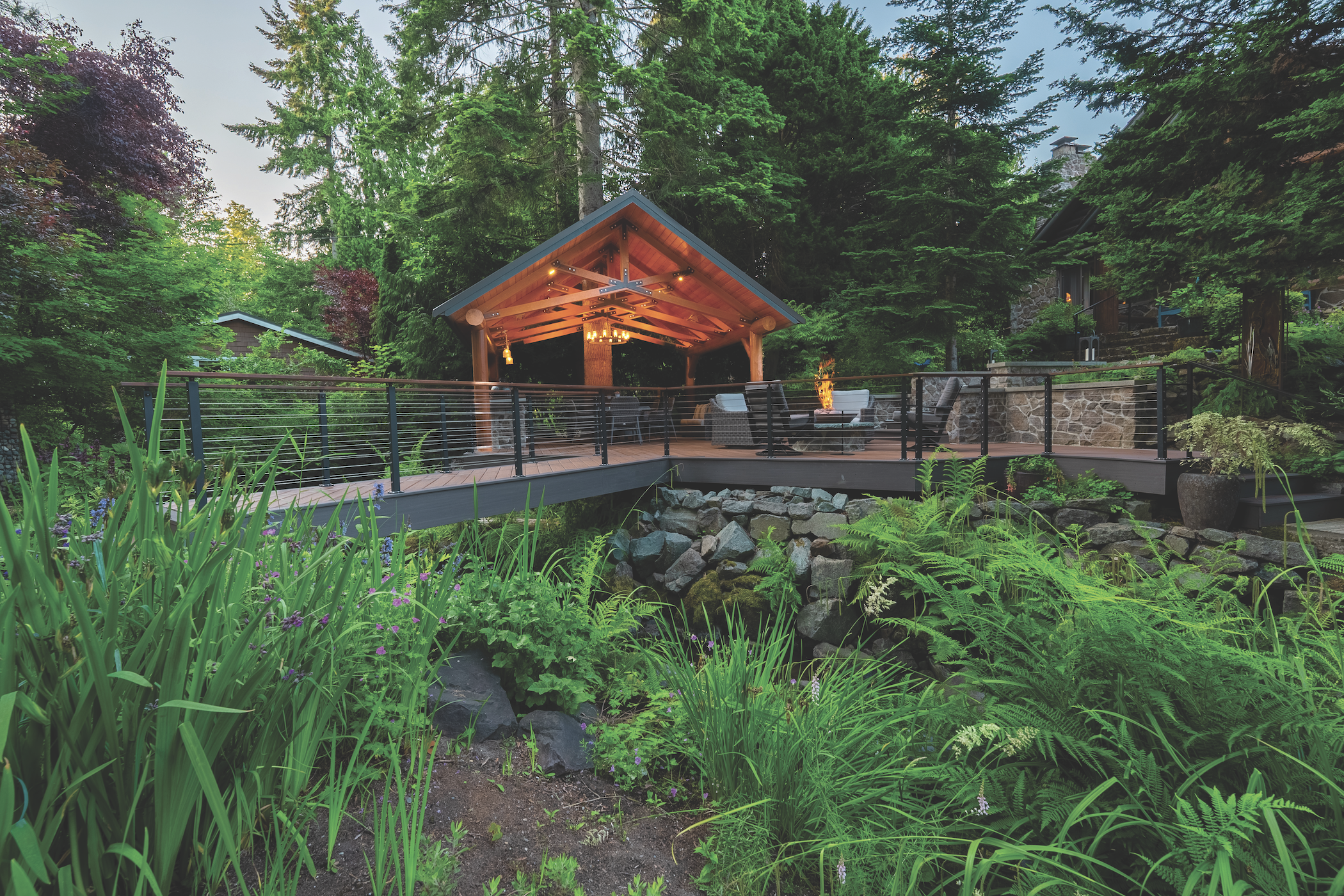 “The Tree” WALP award-winning project
“The Tree” WALP award-winning project
How does Seattle’s rainy climate factor into your installs?
Our bread and butter on the design/build side has been outdoor living spaces. They’ve done some amazing work over the years. They’ve been doing a lot of infrared heaters, firepits and fireplaces that make you feel like you’re in a room but outside. There’s been so much improvement in technology that makes spaces warmer and more comfortable. They’ve also done such a great job making outdoor furniture more weather-resistant.
Do you have a different perspective on the design/build side now that your firm handles maintenance?
Totally. We’ve got some larger commercial projects we’re starting to install that we’re currently maintaining. We don’t want to just do a beautiful install—we think about long-term maintenance. Our commercial clients are also seeing the impacts of the new projects on their budget in terms of maintenance. They know certain plant material is going to cost more to maintain than zero-scapes with more decorative rock. Residential clients still want a lot of hedges or beautiful and lush installs, and they don’t always take into account the upkeep.
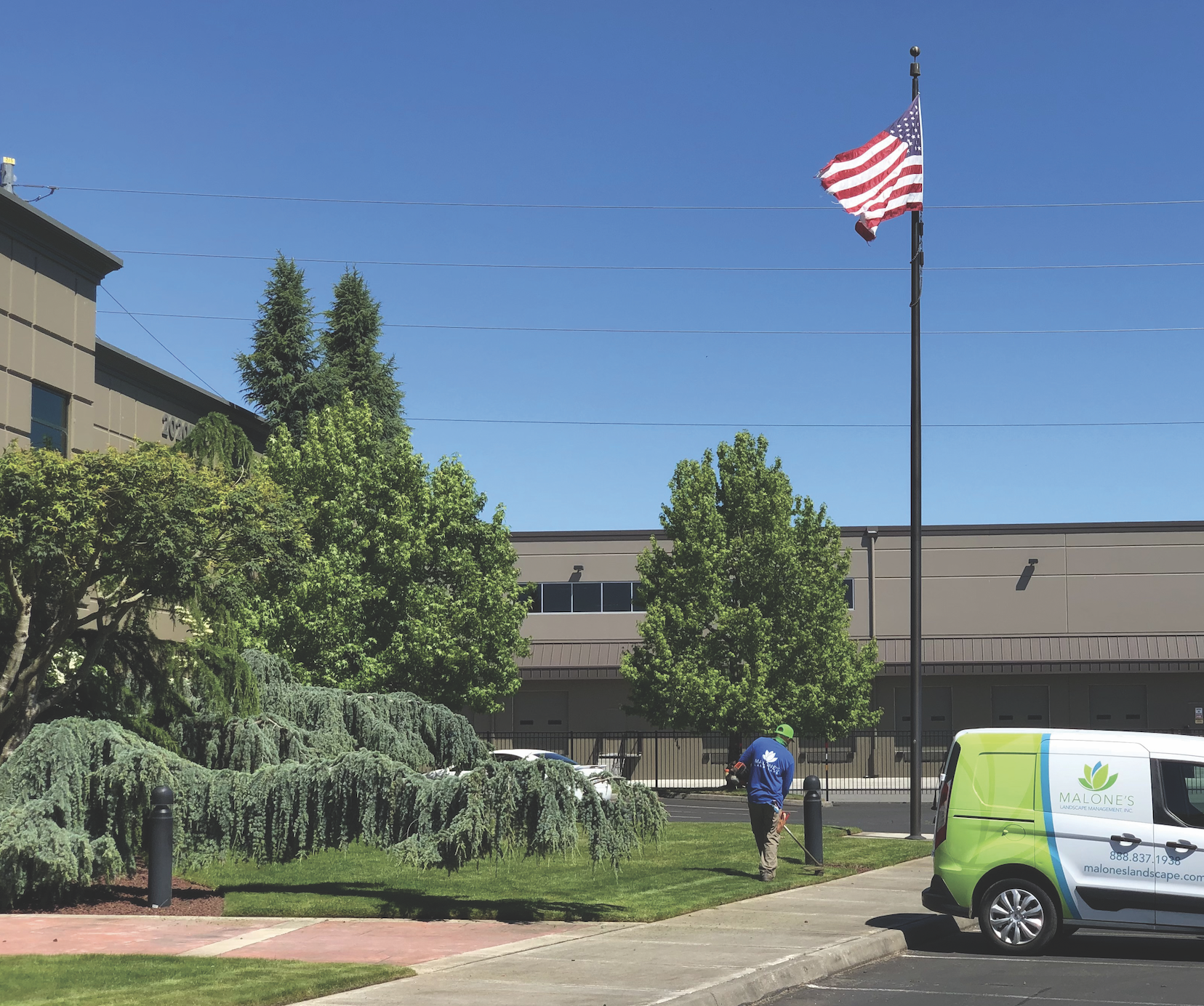
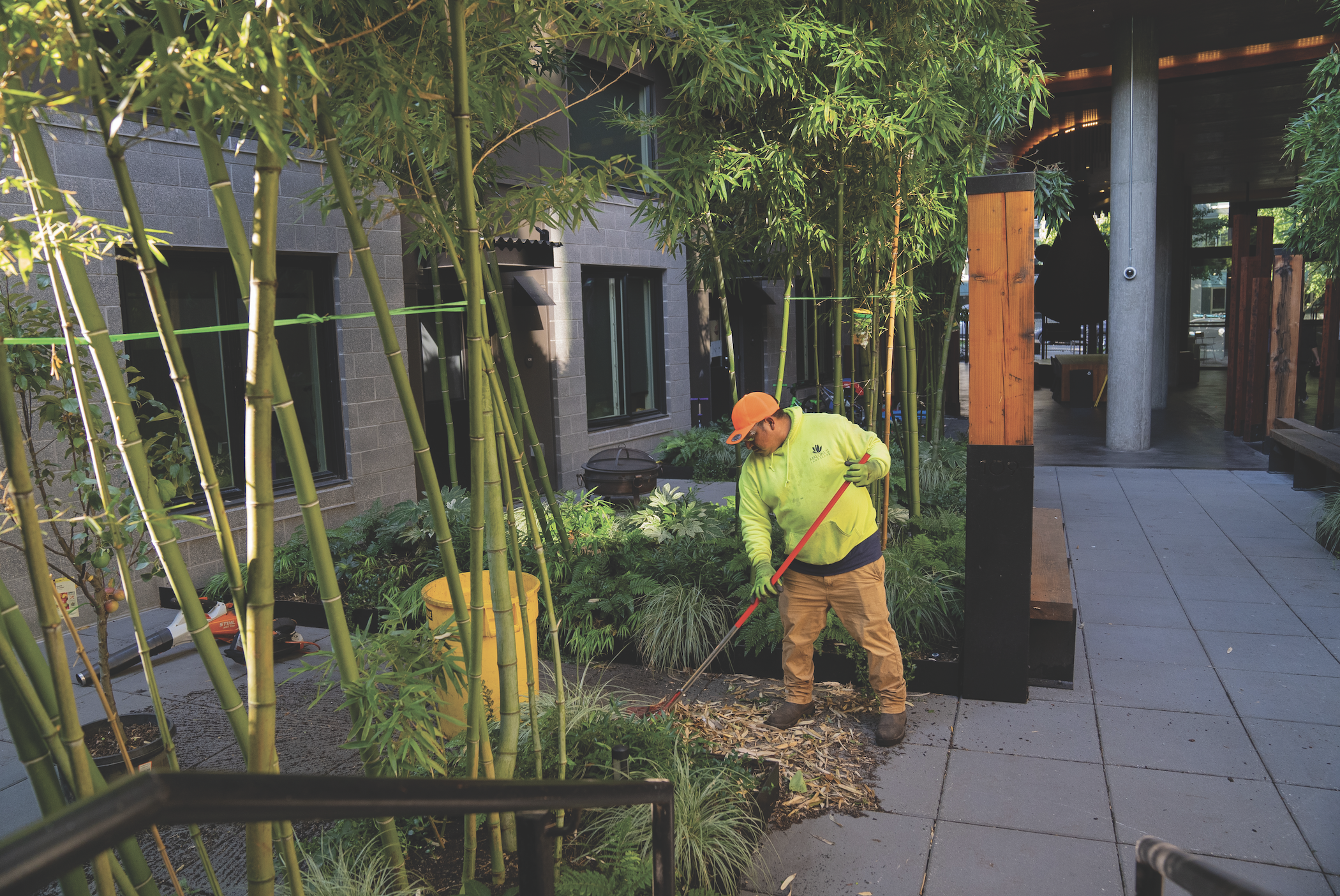
What are you doing to be more eco-friendly and sustainable?
We’re really making a shift toward battery-operated equipment, especially at our high-rise buildings in downtown Seattle. We also do a ton of mulch mowing. We won’t take any clippings—we take pride in minimum dump runs. And it’s better for the yard. You just have to educate clients on the best practices.
Are your parents still involved with the business?
They are definitely getting to the point where they want to be more hands-off and are taking longer vacations. But I don’t know if they’ll ever stop working completely—they love it. My brother, Jake, is a project manager on the construction side. He’s been doing a great job learning that side of the business and coming up through the ranks. Our parents have taught us to work hard and to have a strong work ethic.
How is it working with family?
Obviously, there are hard times and easy times. Our family dynamic is laid-back and we get along. In landscaping, you’re outside and in the field so we’re not in the same room all day, which helps.
What tools do you use to manage so many clients?
Our main software is Service Autopilot for the maintenance department. My mom has created our own proprietary client estimating tool that’s worked well. We also use a collaboration tool called Asana.
What advice do you have for companies looking to grow?
Don’t scale chaos. Get your prototypes down. What do you want your maintenance truck to look like? What does a construction truck look like? What’s your best crew size? Try to streamline and create a cookie-cutter scenario to produce a consistent result.
"Also, remember your team is the
most important. If you try to do everything yourself as a manager or business owner & not build leaders under you, it will hamper your growth."
Promote from within, train your people and help them flourish. Three of our guys started in labor positions, moved to crew lead and are now field supervisors and a production manager.
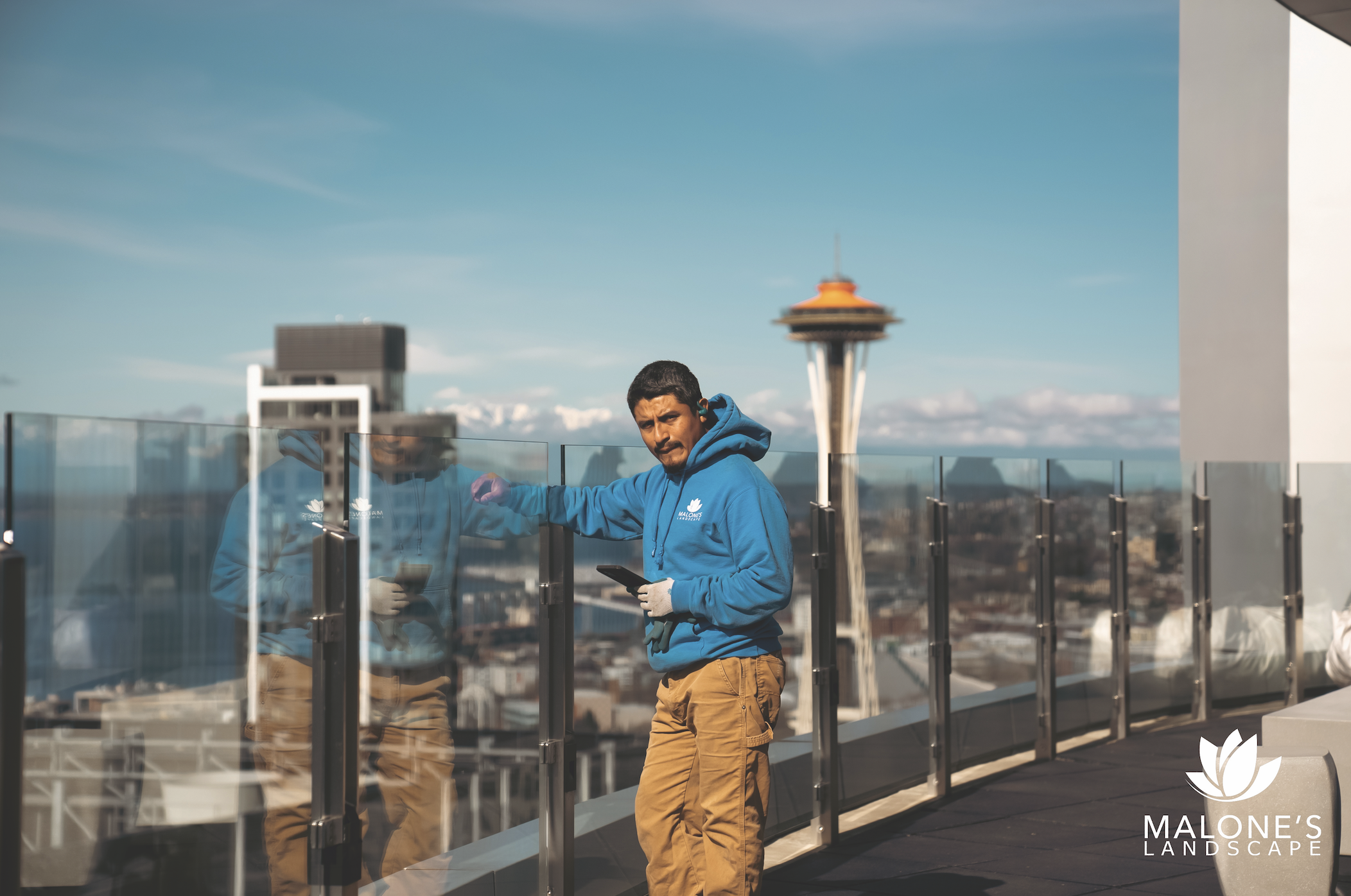
Down Town Seattle 40th Floor Rooftop Renovation
What would make the industry better?
A lot of good stuff is happening right now. The green industry is booming. Quality control always helps. Hold your company to higher standards and encourage the competition to do the same. It raises the bar for everyone. Healthy, good competition is always a key factor to improvement. Strive to be better and add more value to clients. Networking is also important. Being involved with peer groups and industry leaders around the country, and getting their insights on what’s working and what’s not, has had a big influence on me.
What are your goals for the future?
We’re working with multifamily HOAs and apartments, industrial and commercial spaces and a few hospitals. We want to continue to diversify our maintenance portfolio and include municipalities. We also want to continue to grow with our great team. But what got us here isn’t going to get us to the next level. We have to continuously improve.
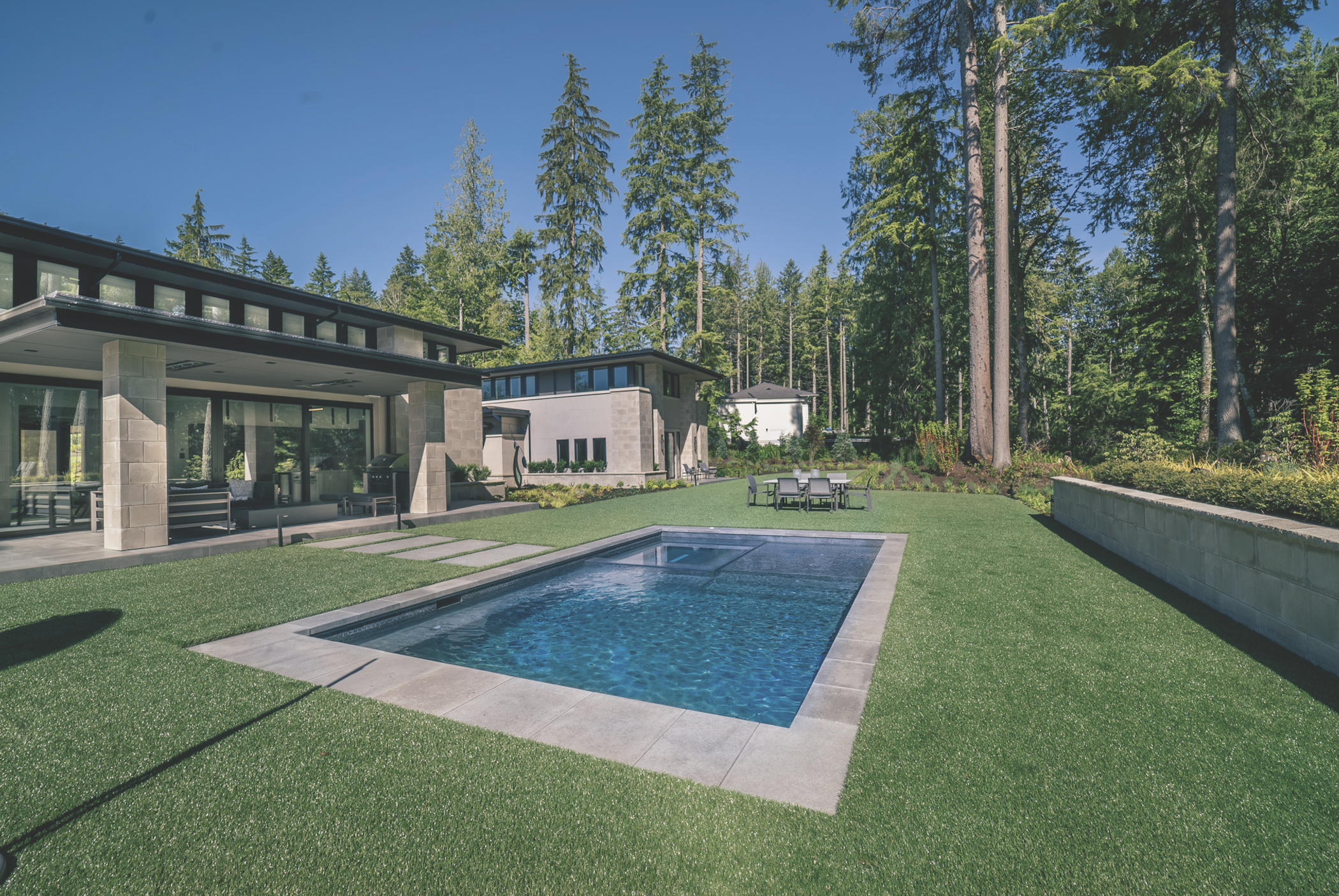
Beautiful back modern backyard transformation
Ryan Malone
Maintenance Division Manager for Malone’s Landscaping Management
Office: (888)837–1938
maloneslandscape.com
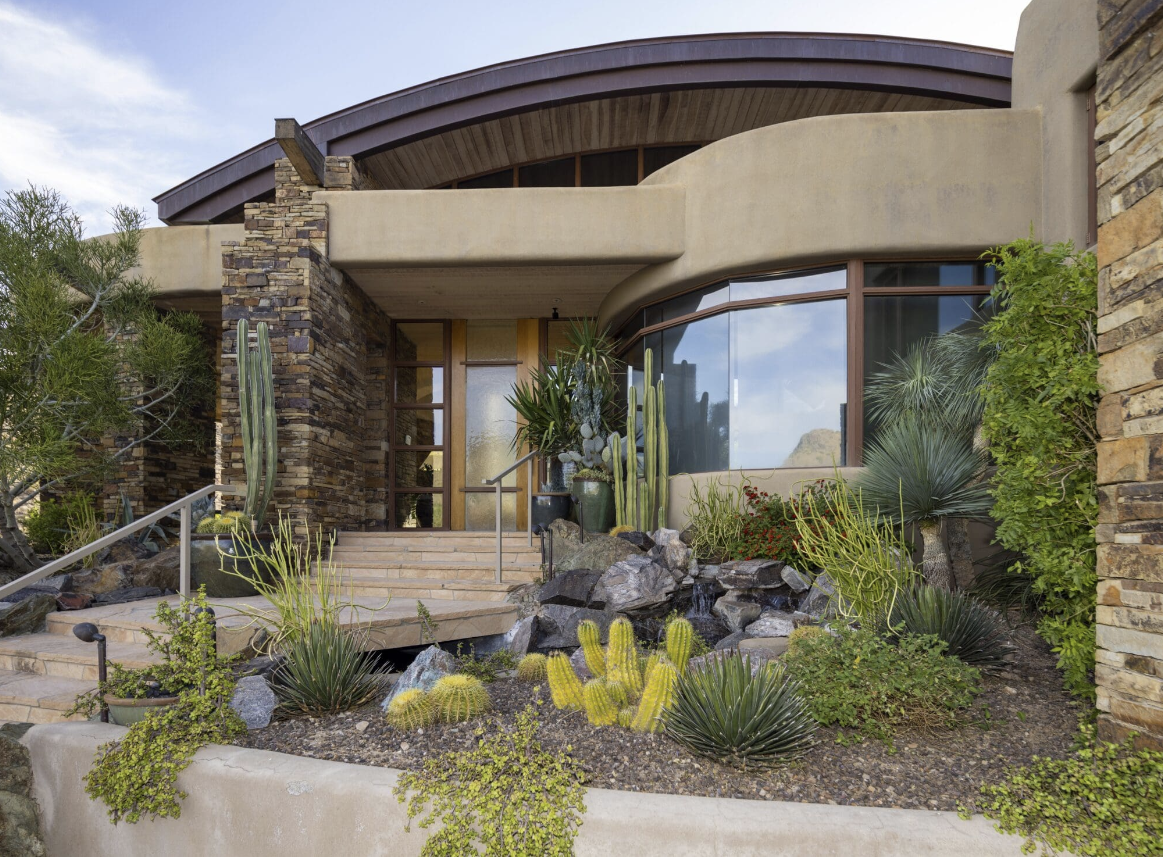
Mariani Premier Group Expands in Arizona with Acquisition of Desert Foothills Landscape, Handyman Maintenance, and Benhart Landscaping

Increase your landscape company’s profitability by making better purchasing decisions By Bryan Mours, Vice President of Customer Experience, Aspire...

WHY EI MATTERS IN THE FUTURE OF LEADERSHIP In January/February’s edition of SYNKD , I wrote about emotional intelligence (EI), including what it...